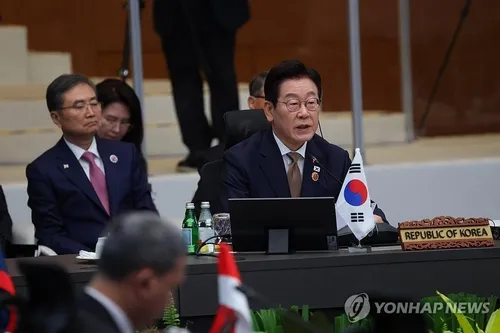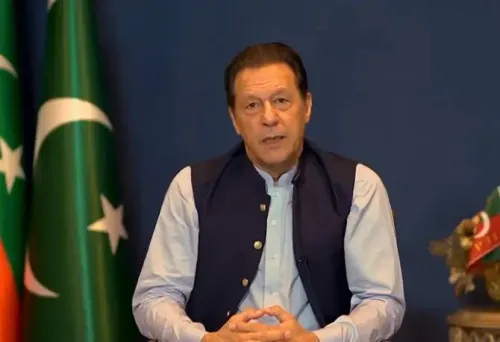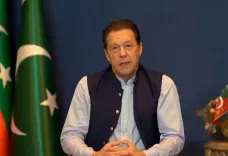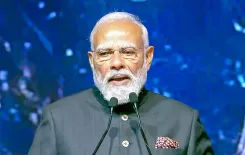How Will South Korea Enhance Cooperation with ASEAN to Combat Transnational Crimes?

Synopsis
Key Takeaways
- Strengthened cooperation with ASEAN to combat transnational crimes.
- Focus on protecting youth from organized crime.
- Ambitious trade goal of $300 billion between Korea and ASEAN.
- Proactive role in enhancing maritime security.
- Commitment to peace on the Korean Peninsula.
Kuala Lumpur, Oct 27 (NationPress) South Korean President Lee Jae Myung announced on Monday that South Korea aims to strengthen collaboration with the Association of Southeast Asian Nations (ASEAN) to tackle transnational crimes and protect young individuals from becoming targets of organized criminal syndicates in Southeast Asia.
Addressing the gathering in Kuala Lumpur, Lee's comments come in light of rising worries regarding online scams affecting Koreans. This concern was heightened by a recent tragic incident involving the torture and death of a Korean college student who was lured to a scam center in Cambodia.
"Criminal organizations, including scam centers, have proliferated in border regions where law enforcement is lacking, and tragically, a significant number of youths are falling prey to these transnational crimes," Lee stated, as reported by Yonhap News Agency.
He emphasized that the Korean National Police Agency will collaborate closely with ASEANAPOL (ASEAN Police Chiefs) to dismantle these criminal hubs and prevent the establishment of transnational crime networks in the region, while also enhancing bilateral and multilateral criminal justice cooperation.
During his inaugural participation in the annual summit since taking office in June, Lee outlined South Korea's strategy to deepen the Comprehensive Strategic Partnership (CSP) established with ASEAN last year. He proposed hosting a special summit in 2029 to commemorate the 40th anniversary of diplomatic relations.
The CSP vision, which stands for ASEAN's premier partnership framework, seeks to position South Korea as a "contributor" to aspirations and hope, a "springboard" for progress and innovation, and a "partner" in fostering peace and stability, he explained.
As part of this initiative, Lee stated that South Korea aims to boost reciprocal visits to 15 million annually and increase bilateral trade to US$300 billion. He also emphasized a proactive approach in addressing transnational crimes, enhancing maritime security, and offering disaster relief to promote regional peace and stability.
To facilitate achieving this annual trade target, Lee mentioned that his administration will pursue negotiations to broaden the scope of the free trade agreement (FTA) with ASEAN, thereby strengthening economic relations.
"I intend to propose an ambitious target of reaching an annual trade volume of $300 billion between Korea and ASEAN, and initiate negotiations to upgrade the Korea-ASEAN Free Trade Agreement," Lee expressed in a column for The Star, a Malaysian newspaper.
South Korea and ASEAN initially signed an FTA concerning goods in 2006, followed by agreements on services in 2007 and investment in 2009.
In the summit, Lee reaffirmed Seoul's dedication to fostering peace on the Korean Peninsula and requested ASEAN's support for his administration's policy towards North Korea, as conveyed by presidential spokesperson Kang Yu-jung to reporters.
"We are committed to rebuilding trust between the two Koreas, resuming dialogue, increasing exchanges and cooperation, and establishing enduring peace on the Korean Peninsula," Lee remarked during the session, according to Kang.
ASEAN leaders expressed their support for the Lee administration's policies, with hopes that this backing will be reflected in a joint statement.










